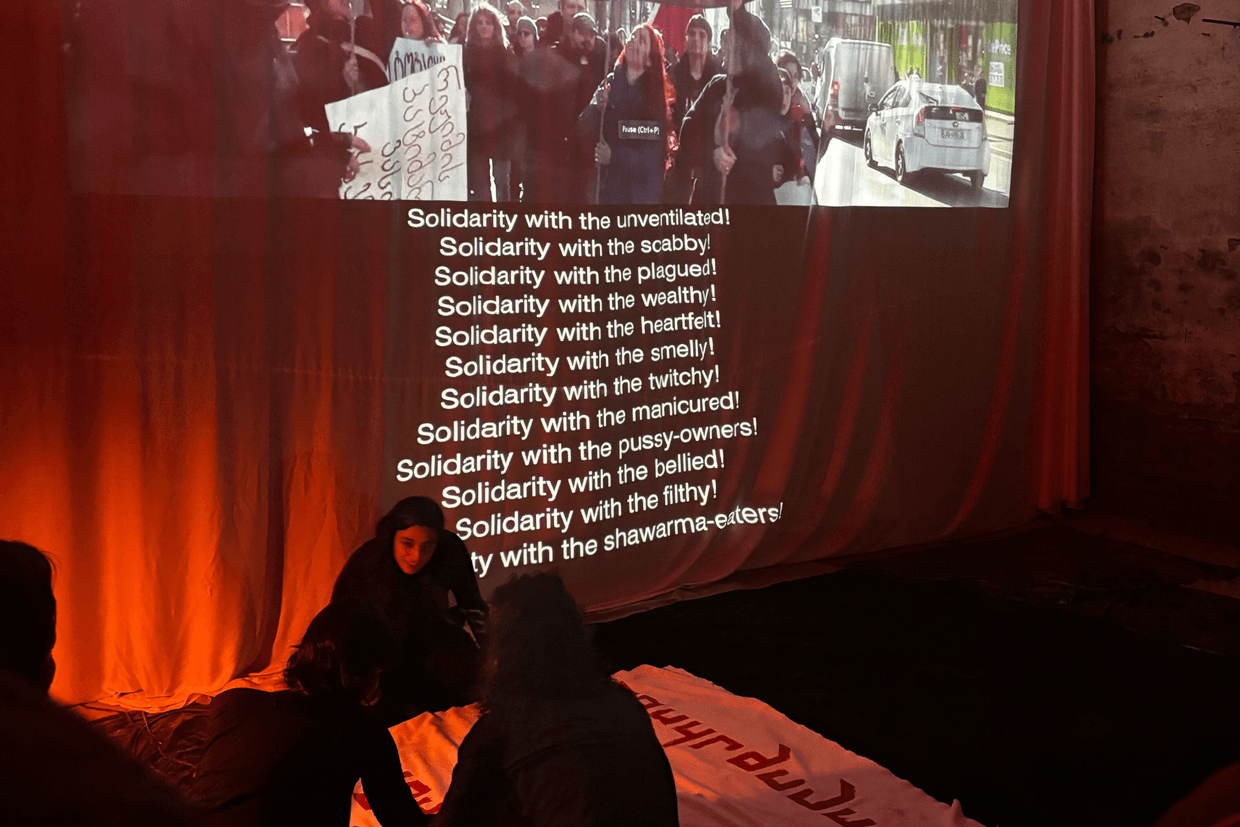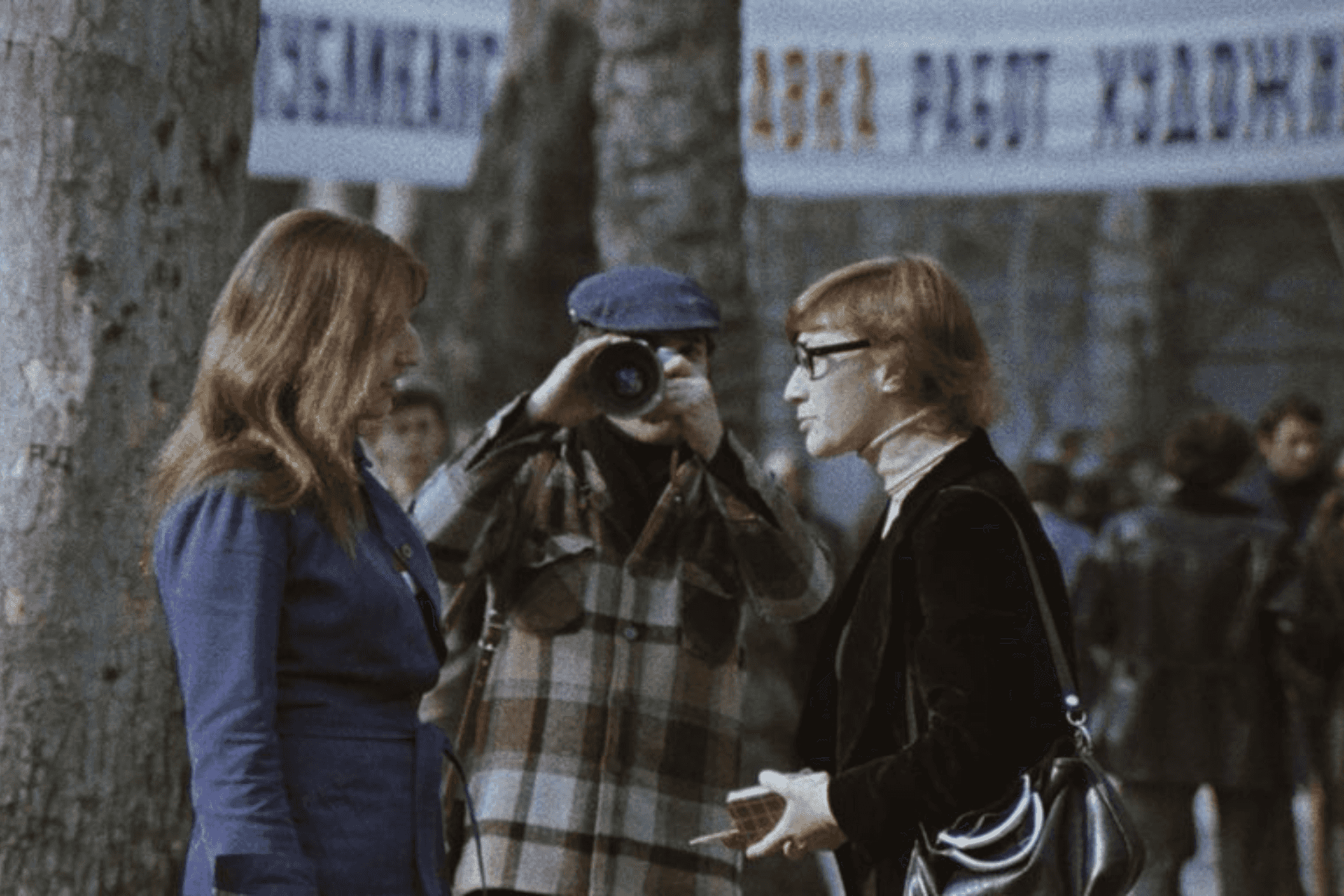
1.5/5★
Who’s Gonna Heal Our Wounds is experimental theatre that delivers powerful feminist statements, but lacks depth and a solid dramatic structure.
Queer feminist theatre has often brought forward some of the most vital, daring, and necessary voices in contemporary performance across the world. That is why it feels particularly difficult to write about Who’s Gonna Heal Our Wounds? — a 30-minute production by an unnamed queer feminist collective that, despite its intentions, struggles to find actual depth and cohesion.
The play begins with two chairs being shown on a screen while dialogue, seemingly between ex-lovers, occurs off-stage. A lone performer then appears, painting as two others join and begin reading aloud from sheets of paper. Their words move into a series of affirmations and contradictions: women who shave legs and women who don’t, those who want children and those who don’t, the ‘unfuckable’ and the ‘skinny sluts’. It seems intended as a broad manifesto of inclusivity, yet its delivery feels more like recitation of clichés than expression.
As the performance unfolds, it touches on struggle and survival before segueing into a video set to ‘What’s Up?’ by 4 Non Blondes, delivered in American adolescent movie style and deliberately bad singing. A long sequence of solidarity messages follows, extending affection to a neverending list of pussy owners, smelly people, cats, crocodiles, shawarma-eaters, while protest footage from Tbilisi flashes across the screen, followed by images of jellyfish and galaxies. The refrain of solidarity reaches toward universality, insisting on love, belonging, and connection.
The closing moment — the completed painting revealing the words Solidarity born in pain — is meant as a cathartic culmination. However, instead of a layered emotional journey, the work comes across as box-ticking: earnest statements strung together without sufficient depth or dramaturgical grounding.
To its credit, the production attempts to merge performance, video, and visual art in order to grapple with themes of feminism, queerness, and resistance. However, the piece insists upon emotion without quite generating it, layering slogans rather than sculpting experience. The intention is powerful — but its execution leaves one wondering whether it was deliberately opaque or simply underdeveloped.
Who’s Gonna Heal Our Wounds? was recently staged at Mutant Radio as part of the 2025 Tbilisi International Festival of Theatre.










